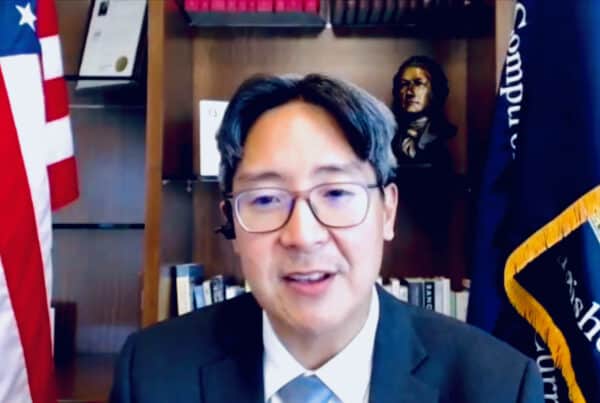
Acting Comptroller of the Currency, Michael J. Hsu, addressed the American Bankers this week speaking about “tail risks” – or low probability, high impact risk events.
In a world pummelled by geopolitical challenges like Russia’s war with Ukraine, and the ever-present concern of cyberattacks, Hsu says that institutions that are not well prepared may end up being surprised.
One area of risk that Hsu discussed was crypto derivative risk as multiple large banks have entered the market, due to demand, mentioning specifically Goldman Sachs who recently revealed a Bitcoin-linked non-deliverable option in partnership with Galaxy Digital.
Hsu issued a word of caution to big banks that are pursuing crypto derivatives, bulletin out the top risks:
- First, crypto-assets have limited or unreliable price histories. Most risk models rely on robust price histories to inform risk metrics, such as VaR, which in turn are used as inputs to calculate capital requirements. Correlations between different crypto-assets and between crypto-assets and traditional assets are unstable. Underappreciation of the limits of today’s price histories for crypto-assets can lead to underestimation of the actual and tail risks of crypto-related positions, which could translate into undercapitalization of exposures.
- Second, I am worried about certain crypto positions being netted in the risk aggregation process for risk reporting, regulatory capital, and risk management purposes. While the management of basis risk is a bread-and-butter skill for derivatives traders, history is littered with examples of supposedly hedged positions blowing up: Long-Term Capital Management, Amaranth Advisors, statistical arbitrage funds in August 2007, and the London Whale, to name a few. In each case, the net risk positions prior to the blow-ups were reported as hedged and thus manageable, which dulled risk signals and allowed portfolios to grow to dangerous sizes.
- Third, the potential for wrong-way risk may be heightened with crypto derivatives. For counterparties that are structurally long crypto and use such trades to double-down to get further leverage, the amount owed by that counterparty to the dealer bank would increase at the same time that the counterparty would be experiencing financial stress. Classic wrong-way risk. Collateralizing such exposure may help mitigate some of that risk, unless banks choose to accept crypto-assets as collateral, in which case the value of that collateral would fall at exactly the time that it would be needed most.
Hsu stated that the Basel Committee on Banking Supervision is evaluating the capital treatment for crypto-related exposures and the OCC is highly supportive of this. He also added that the OCC has engaged with the UK Prudential Regulatory Authority (PRA), as well as other US regulators striving to maintain a consistent approach predicting collaboration will grow as the market matures.

